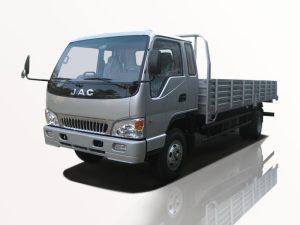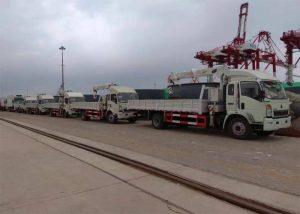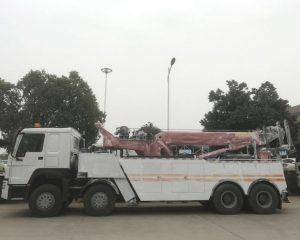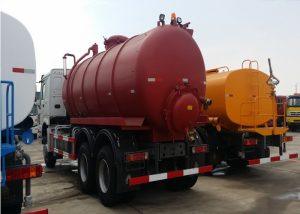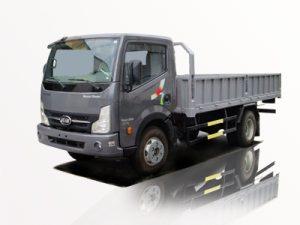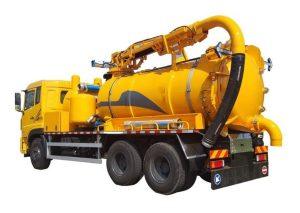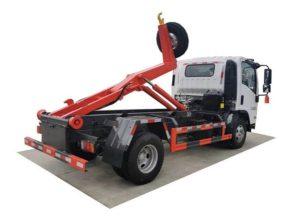Monday to Saturday - 8:00 -17:30
Understanding Hydraulic Cylinders for Dump Trucks: A Comprehensive Guide
Introduction
Hydraulic cylinders are vital components in the functioning of dump trucks, enabling them to lift and tilt the truck bed for efficient unloading of materials. This article delves deeply into the workings, benefits, and maintenance of hydraulic cylinders specifically designed for dump trucks. Whether you are a truck owner, operator, or simply curious about hydraulic systems, this comprehensive guide will provide valuable insights into this essential equipment.
What is a Hydraulic Cylinder?
A hydraulic cylinder is a mechanical actuator that converts hydraulic energy into linear motion. In dump trucks, these cylinders are responsible for lifting the bed to discharge the load of gravel, sand, or other materials.
Components of Hydraulic Cylinders
Hydraulic cylinders consist of several key components:
- Cylinder Barrel: The outer casing that holds the hydraulic fluid and provides structural integrity.
- Piston: A sliding component inside the barrel that moves back and forth to create the lifting action.
- Piston Rod: The extension of the piston that connects to the dump truck bed.
- End Caps: Seals that contain the hydraulic fluid within the cylinder barrel.
- Hydraulic Fluid: The liquid medium that transmits power within the system.
Types of Hydraulic Cylinders
There are several types of hydraulic cylinders commonly used in dump trucks:
- Single-Acting Cylinders: These cylinders provide force in one direction; commonly used for simple lifting mechanisms.
- Double-Acting Cylinders: Allow force in both extension and retraction, providing more control and efficiency.
How Hydraulic Cylinders Work in Dump Trucks
The Lifting Process
When a dump truck is loaded, the hydraulic fluid is pumped into the cylinder, forcing the piston upwards. This action tilts the truck bed, allowing the contents to slide out. Once the load is discharged, the hydraulic fluid is released, and the piston returns to its original position.
Control Systems for Hydraulic Cylinders
Hydraulic systems in dump trucks are often equipped with control valves that manage the flow of hydraulic fluid. Operators can utilize joystick controls or buttons within the cab to accurately position the bed for raising and lowering.
Benefits of Hydraulic Cylinders for Dump Trucks
Efficiency and Speed
Hydraulic cylinders enable quick lifting and lowering of the dump bed, enhancing the speed of operations on job sites.
Heavy-Duty Performance
These cylinders are designed to handle heavy loads, making them suitable for various materials, from gravel to concrete.
Durability and Maintenance
Hydraulic cylinders are built to withstand challenging conditions, but regular checks and maintenance are crucial for longevity. Lubrication, seal inspections, and fluid checks are key aspects of maintenance.
Choosing the Right Hydraulic Cylinder for Your Dump Truck
Load Capacity
Consider the maximum load your dump truck will carry. This will determine the size and type of hydraulic cylinder required.
Type of Operation
Decide between single-acting and double-acting cylinders depending on your operational needs.
Brand and Compatibility
Stick to reputable brands known for quality hydraulic products. Verify compatibility with your specific dump truck model.
Installation Tips for Hydraulic Cylinders
Preparation for Installation
Before installing a hydraulic cylinder, ensure that you have the necessary tools and safety equipment. Read the manufacturer’s manual thoroughly.
Step-by-Step Installation Guide
- Disconnect power and relieve any hydraulic pressure.
- Remove old hydraulic cylinders by detaching them from the cylinder mounts.
- Position the new hydraulic cylinder carefully, ensuring it aligns with the mounts.
- Reconnect the hydraulic lines securely.
- Test the system by turning on the power and operating the controls.
Maintenance of Hydraulic Cylinders
Routine Inspection
Regularly inspect cylinders for leaks, rust, or damage. Check seals and end caps for wear and ensure all hydraulic connections are tight.
Fluid Levels and Quality
Monitor the hydraulic fluid level frequently. Change the fluid at manufacturer-recommended intervals to prevent contamination.
Preventive Maintenance Tips
- Keep hydraulic systems clean and free from debris.
- Lubricate moving parts as needed.
- Store the dump truck in a protected environment to reduce exposure to the elements.
Common Issues with Hydraulic Cylinders
Hydraulic Fluid Leaks
Leaks can occur due to worn seals or damaged connections. Immediate repair or replacement is necessary to prevent further damage.
Piston Sticking
Pistons may stick due to dirt or corrosion, affecting the lifting ability. Regular cleaning and lubrication can help mitigate this issue.
Inadequate Lifting Power
If a hydraulic cylinder fails to lift properly, it may indicate low fluid levels or a need for cylinder repair. Conduct a thorough system check to diagnose the problem.
Hydraulic Cylinder Troubleshooting Guide
| Problem | Possible Causes | Solutions |
|---|---|---|
| Fluid Leaks | Worn seals, loose fittings | Inspect and replace seals; tighten fittings |
| Piston Sticking | Dirt build-up, corrosion | Clean and lubricate the cylinder |
| Sluggish Operation | Low fluid levels, wrong fluid type | Check fluid levels and refill, change fluid if necessary |
FAQ Section
What are the common types of hydraulic cylinders used in dump trucks?
The most common types are single-acting and double-acting cylinders. Single-acting cylinders are used for basic lifting, while double-acting cylinders provide better control and efficiency for heavier loads.
How often should hydraulic cylinders be serviced?
It is recommended to inspect and service hydraulic cylinders at least once every six months, or more frequently if the truck is used in harsh conditions.
Can I replace a hydraulic cylinder by myself?
Yes, with the proper tools and safety precautions, you can replace a hydraulic cylinder yourself. However, it is always advisable to consult the manufacturer’s manual for specific guidelines.
What causes hydraulic fluid leaks?
Common causes include worn or damaged seals, loose connections, or corrosion on the cylinder body. Regular maintenance and inspections can help mitigate these issues.
What should I do if my dump truck’s hydraulic lift is not working?
First, check the hydraulic fluid levels and inspect for any leaks. If everything seems fine, consider looking into the control valves or consulting a professional for a more in-depth inspection.
How can I enhance the longevity of my hydraulic cylinders?
Regular maintenance, including cleaning, lubrication, and ensuring proper fluid levels, can greatly enhance the longevity of hydraulic cylinders in dump trucks.


